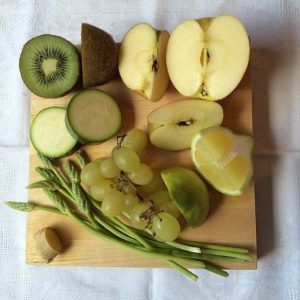With the speedy and ultra busy modern rhythm of life, many of us have forgotten that our bodies follow the rhythm of Mother Nature. As the winter is coming, tree leaves are turning into beautiful colours as the sap is going down to the roots. The trees are getting ready to stand still and wait for the spring to blossom. Our bodies are following a similar process and all our systems are slowing down as we enter winter. The human body systems include the endocrine system (in charge of our hormones), the digestive system and the immune system among others. The immune system is the one in charge of our body’s defenses and it protects us from getting sick. With the shortage of daylight, the change of hour, many of us feel more tired and this makes us even more prone to disease. But being sick during the winter is not mandatory, you can support your body and prepare it to get through. Here are some tips:
To strengthen your immune system many nutrients are necessary.
Selenium is an antioxidant which contributes to the efficiency of the immune system and has a very wide variety of protective functions within the body (selenium is found in egg yolk, garlic, seafood, and whole-grain flour).

Omega 3s are needed as well as they help reduce inflammation. The absolute best source of omega-3 is flaxseeds. One tablespoon of ground flaxseed will supply the daily requirement of omega-3. Flaxseeds need to be grounded for your body to be able to absorb the omega-3 from them but then the shells do not protect them from oxidation anymore and they need to be stored in a refrigerator.
Zinc is involved in the development and functioning of the body’s infection-fighting white blood cells and is found in dairy produce, egg yolk, liver, red meat, seafood and whole-grain flour.
Vitamin A which is an antioxidant, meaning it protects the cells, is also needed; it can be found in animal sources, such as eggs, meat, fortified milk, cheese, cream, liver, kidney, cod, and halibut fish oil.
Vitamin E helps to keep the immune system strong in its ongoing fight against viruses and bacteria. The best sources of vitamin E are vegetable oils, whole grains, wheat germ, nuts (such as peanuts, hazelnuts, and, especially, almonds) and seeds (like sunflower seeds) as well as leafy green vegetables (such as spinach and broccoli).

Vitamin D enhances our immune system but also helps the body absorb calcium, remodel our bones, improve our mood among many other benefits. Stocking up on vitamin D is good, but Vitamin D is called the “sunshine vitamin” and that’s for a reason. This vitamin is produced by getting some sun and many of us living in the Northern Hemisphere are deficient. It’s better to get your vitamin D from the sun if you can as it is the absolute best source. As an alternative, you can eat vitamin D rich foods and/or take supplement to help prevent deficiencies. Natural sources of vitamin D are fatty fishes (such as tuna, salmon, and mackerel), cod-liver oil or halibut-liver oil.
You should supplement in vitamin C as well. Make sure it is natural vitamin C source or from fresh fruits and vegetables. Vitamin C is essential to strengthen the immune system and keep the body healthy. The best food sources of vitamin C are berries, citrus, kiwi, bell pepper and dark green veggies.



